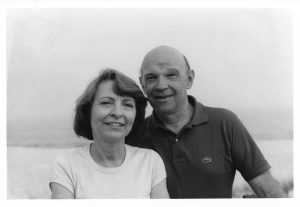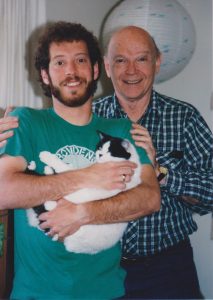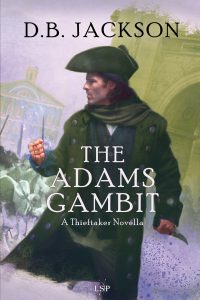I have been sitting in front of this screen for the better part of an hour, trying to write something for my opening Monday post of 2022. I am in no mood for prognosticating. With Covid still raging, and forty million Americans still stubbornly refusing to be vaccinated and bizarrely resistant to wearing masks, this doesn’t seem a time to be confident about anything, near-term or long-term.
I have no interest in reviewing the year just past. Any discussion of current political trends is likely to be irrelevant a month from now (and depressing for me and my like-minded friends in the interim . . .).
I also don’t wish to write about something frivolous (I have been enjoying this week’s Premier League soccer broadcasts and considered — briefly — writing about that).
I have written far too often about my personal struggles of the past year, and don’t wish to revisit them once again.
And, I realize as I write that last, I am reluctant to delve too much into my current emotional state. Because the truth is, I feel pretty good right now. Better than I have for much of the past year.
This will sound odd, but optimism scares me.
I come by my pessimism naturally. My mother could be terribly superstitious, and often didn’t like to give voice to her hope for good things, at least not without knocking on wood or something of the sort. I can be the same way. And on occasion in the past, when I’ve allowed myself to think positively, I’ve had bitter disappointments. None more devastating than this past year, when I dared feel some optimism in the winter, with The Former Guy having left office and the harsh winter Covid wave seemingly on the wane. Then our daughter was diagnosed with cancer.
And so saying I feel good right now scares me a little. The truth is, we don’t know what will happen with our daughter’s illness. Things look good right now, but with a disease like this, there are never guarantees. We as a nation don’t know what will happen with the pandemic. Things look dire right now, but if we can weather this wave, which seems likely to peak late this month, who knows? We also don’t know what will come of the anti-democratic rumblings and activities of the far right. I fear the worst, but hold out some hope that our system of government, which has seen so many crises over the past two hundred and forty years, will prove resilient.
Life’s uncertainty is a source of both wonder and terror for all of us. Good things come out of the blue, sometimes changing the course of our personal or professional existence. Disappointment and tragedy do the same. The hardest part of my emotional health journey over the past year has been coming to terms with that uncertainty and embracing it. Because we can’t know what will happen. Over the years, I’ve written so many characters in so many different stories in so many fantasy worlds, who have the power to glimpse the future, to judge people’s fates, or to see their own. Call it Divination, or The Sight, or Scrying — the power is a common trope in the realm of speculative fiction.
It is a power I am not sure I would want. I know, I just said that dealing with uncertainty has been difficult for me. But I also think knowing our future would rob us of something essentially human. Because while I have never been good at being optimistic, it is something I strive to be. I believe hope is the most human of emotions. Take away uncertainty, and we take away hope as well.
I will admit that my view on this isn’t entirely consistent. Would I like to know for certain, right now, that my daughter will forever be just fine? Of course. Would I want to know the opposite? No way in hell.
Embracing uncertainty means more than merely accepting what we can’t know. It means refusing to game out scenarios in our minds (something I do far too often, to my own detriment), resisting the tendency to give in to our worst fears, or to build up too much expectation for unrealistically rosy outcomes.
And so as I stand at the leading edge of this new year, I find myself unwilling to make predictions, or even to spell out with too much specificity what I want to see happen and what I don’t. Life comes at us fast, and the older I get, the harder it becomes to slow down the days, the seasons, the years.
But for the first time in my life, I am content to begin the new year saying to myself and to the world, I don’t know. I don’t know what will happen to us personally, professionally, politically, socially, culturally. I. Don’t. Know. And that’s okay. Today, I feel good. I’ll let you know about tomorrow when it gets here.
Have a good week. Have a good year.









 I have conversations with my father all the time. Literally every day. Which is kind of remarkable given that we lost him to leukemia twenty-five years ago.
I have conversations with my father all the time. Literally every day. Which is kind of remarkable given that we lost him to leukemia twenty-five years ago. We almost lost Dad before we had him. Which is to say, all of us were almost never here. When Dad was a sophomore at the University of Pennsylvania, he contracted spinal meningitis. Even today, meningitis proves fatal in ten to fifteen percent of cases. Untreated it is nearly always fatal. In 1939, the diagnosis itself was essentially a death sentence. Dad grew very sick very quickly, and fell into a coma. Doctors did all they could for him, including removing a piece of skull from his forehead to relieve some of the pressure on his brain. And still, they were ready to give up on him. But a doctor recommended the use of a revolutionary new drug — penicillin — that he thought might work. Needless to say, the drug saved Dad’s life.
We almost lost Dad before we had him. Which is to say, all of us were almost never here. When Dad was a sophomore at the University of Pennsylvania, he contracted spinal meningitis. Even today, meningitis proves fatal in ten to fifteen percent of cases. Untreated it is nearly always fatal. In 1939, the diagnosis itself was essentially a death sentence. Dad grew very sick very quickly, and fell into a coma. Doctors did all they could for him, including removing a piece of skull from his forehead to relieve some of the pressure on his brain. And still, they were ready to give up on him. But a doctor recommended the use of a revolutionary new drug — penicillin — that he thought might work. Needless to say, the drug saved Dad’s life. I was in the middle of writing a book — Invasives, the sequel to Radiants — and I dove back in. It’s a book about family, as so many of my novels are, and about discovering powers within. It doesn’t take much imagination to understand why I would find that particular story line comforting.
I was in the middle of writing a book — Invasives, the sequel to Radiants — and I dove back in. It’s a book about family, as so many of my novels are, and about discovering powers within. It doesn’t take much imagination to understand why I would find that particular story line comforting. And so around that time, unsure of what to write next, I acted on an idea I’d had for several years. I hung out my virtual shingle as a freelance editor. Work came in quickly, and before I knew it I was editing a series for one friend, and talking to others about future editing projects. I also released the Thieftaker novellas. And prepared for the October release of Radiants. And started gearing up for the Kickstarter for Noir, the anthology I’m co-editing for
And so around that time, unsure of what to write next, I acted on an idea I’d had for several years. I hung out my virtual shingle as a freelance editor. Work came in quickly, and before I knew it I was editing a series for one friend, and talking to others about future editing projects. I also released the Thieftaker novellas. And prepared for the October release of Radiants. And started gearing up for the Kickstarter for Noir, the anthology I’m co-editing for  Shortly after I graduated from college, back in Medieval times, I corresponded with a dear college friend, one who continues to this day to be a close friend. At the time, she was dealing with some emotional issues and had started therapy. “Counseling is the best thing in the world,” she wrote to me. “If everyone was in counseling with a good counselor there would be world peace.”
Shortly after I graduated from college, back in Medieval times, I corresponded with a dear college friend, one who continues to this day to be a close friend. At the time, she was dealing with some emotional issues and had started therapy. “Counseling is the best thing in the world,” she wrote to me. “If everyone was in counseling with a good counselor there would be world peace.”